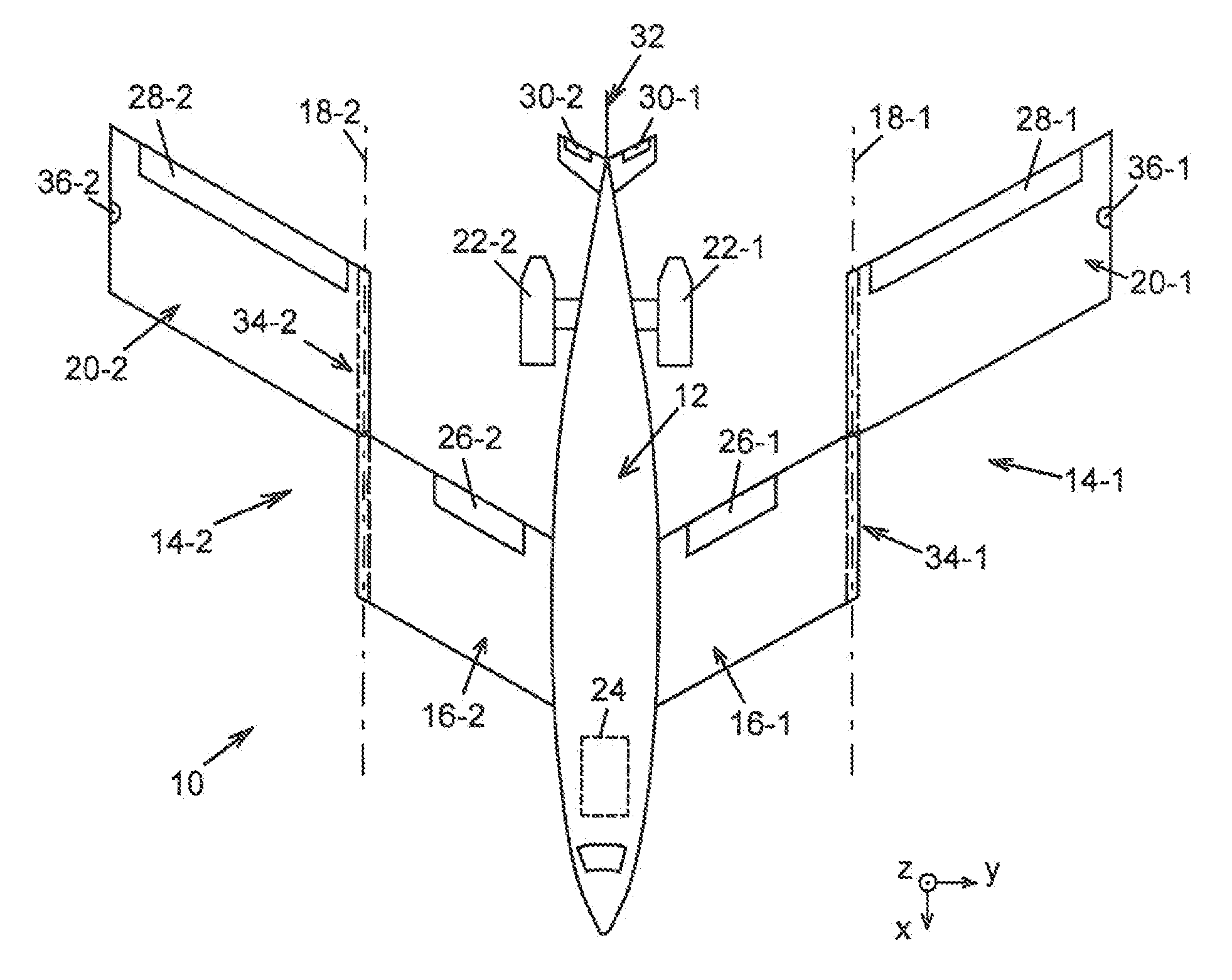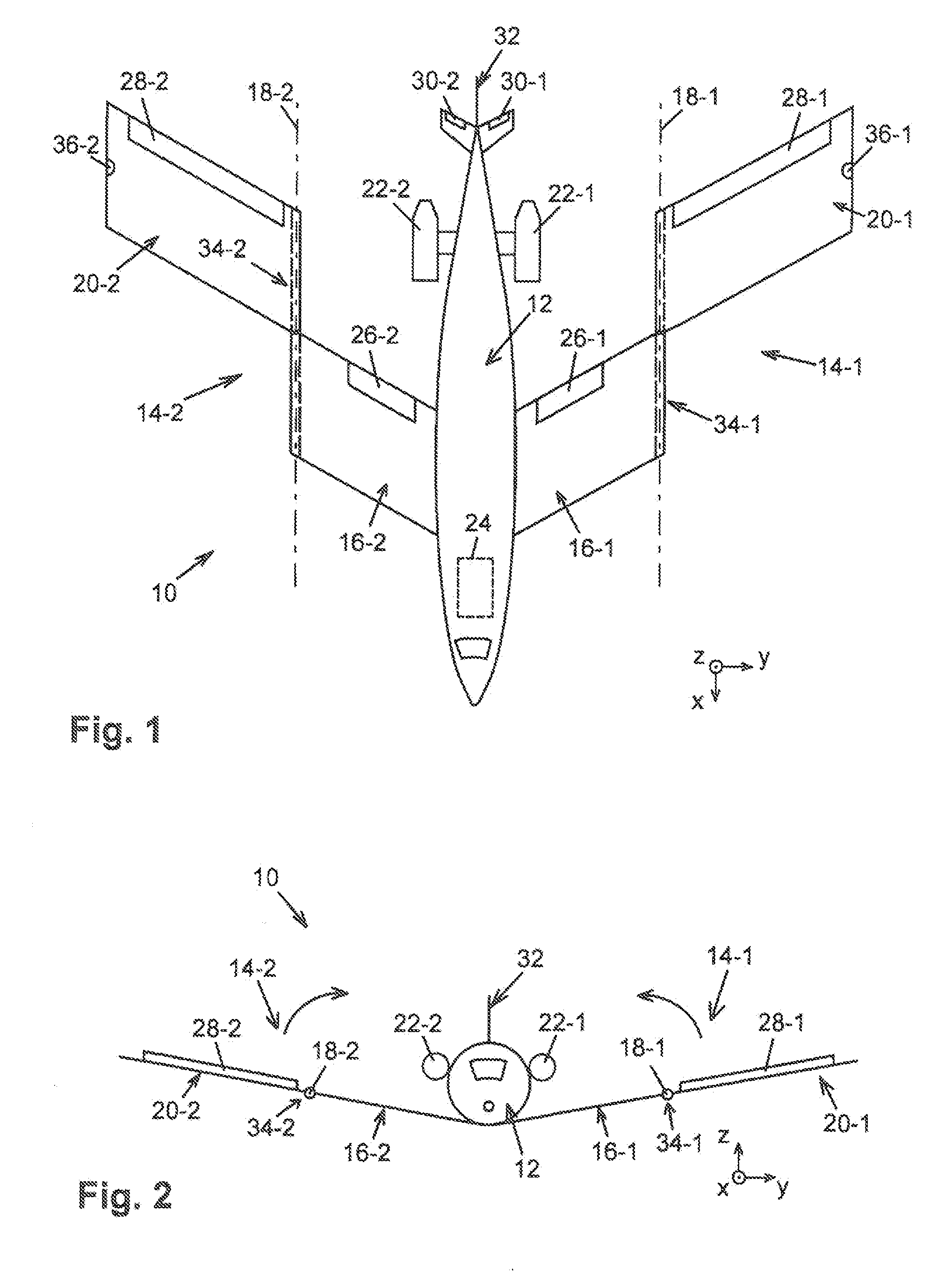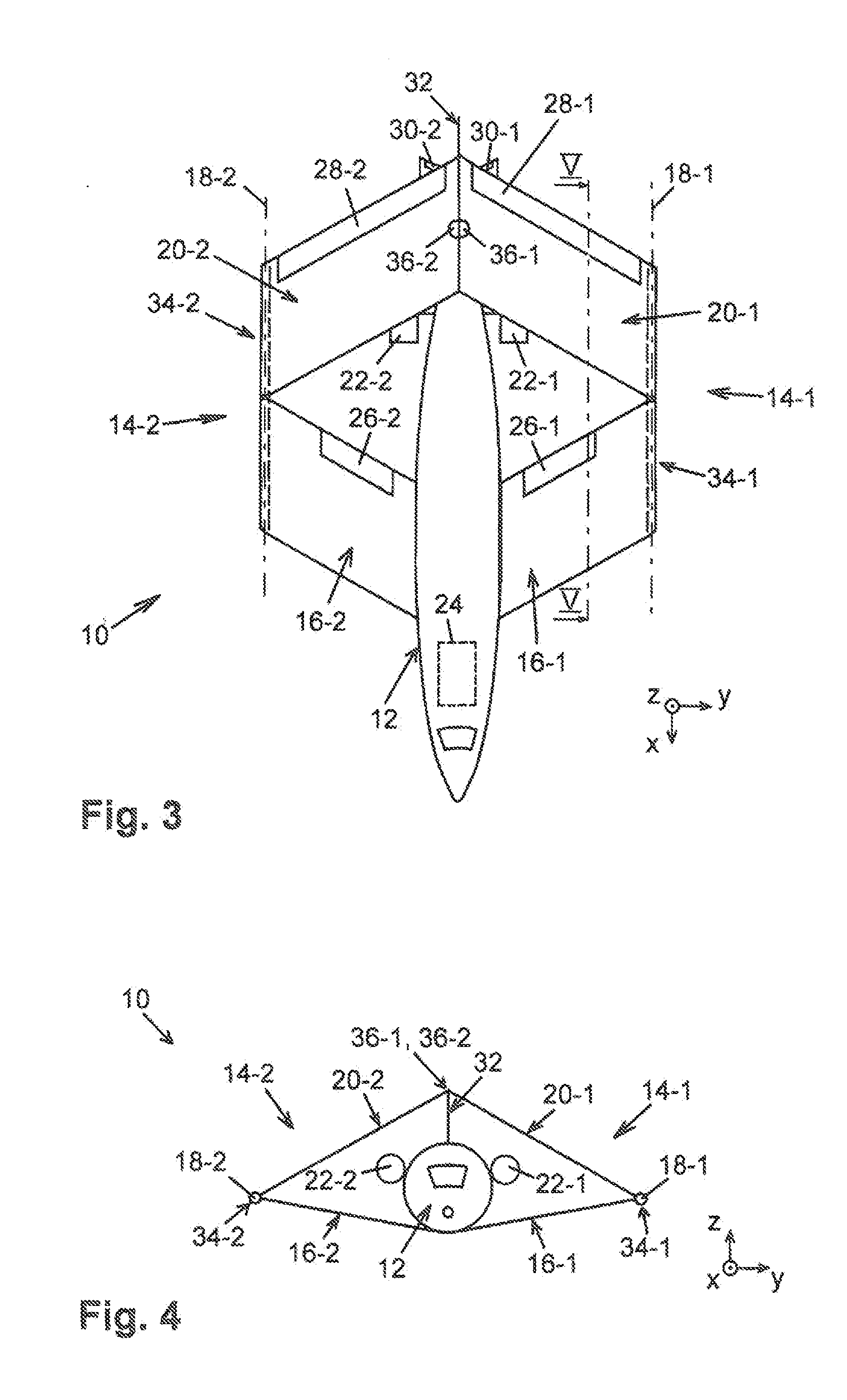Aircraft Having a Variable Geometry
a variable geometry and aircraft technology, applied in the field of aircraft having a variable geometry, can solve the problems of reducing agility, difficult to design suitable pivoting kinematics for a predefined wing area, and disadvantages of known aircrafts with variable geometry, so as to reduce aerodynamic forces, reduce aerodynamic forces, and reduce aerodynamic forces.
- Summary
- Abstract
- Description
- Claims
- Application Information
AI Technical Summary
Benefits of technology
Problems solved by technology
Method used
Image
Examples
Embodiment Construction
[0051]FIGS. 1 and 2 show an aircraft 10, comprising a fuselage 12 with a pair of wings 14-1 and 14-2 projecting therefrom on both sides in the transverse direction y, each of which wings has an “inner wing section”16-1 or 16-2, respectively, arranged stationarily with respect to the fuselage 12 and an “outer wing section”20-1 or 20-2, respectively, arranged adjacent thereto which, with respect to the inner wing section 16-1 or 16-2, respectively, can be pivoted about the pivot axis 18-1 or 18-2, respectively, which is oriented in the longitudinal direction (flight direction) x.
[0052]The reference numbers of components which are provided twice (to the left and right of the center of the fuselage) in the exemplary embodiment but are analog with respect to their effect such as, e.g., the wings 14-1 and 14-2, are numbered consecutively (in each case complemented by a hyphen and the number “1” or “2”). Reference to individual components of such components or the entirety of such componen...
PUM
 Login to View More
Login to View More Abstract
Description
Claims
Application Information
 Login to View More
Login to View More - R&D
- Intellectual Property
- Life Sciences
- Materials
- Tech Scout
- Unparalleled Data Quality
- Higher Quality Content
- 60% Fewer Hallucinations
Browse by: Latest US Patents, China's latest patents, Technical Efficacy Thesaurus, Application Domain, Technology Topic, Popular Technical Reports.
© 2025 PatSnap. All rights reserved.Legal|Privacy policy|Modern Slavery Act Transparency Statement|Sitemap|About US| Contact US: help@patsnap.com



